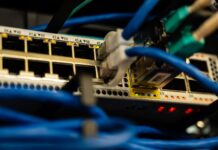Security camera systems have become quite mainstream for businesses, and these days people are also starting to add security cameras to their homes. Adding surveillance cameras to your home has become very important these days. As reports suggest that the majority of the reported robberies and thefts are happening in homes.
On the plus side, installing a security camera system has become quite easy, if you have a little knowledge about cameras you can even install them by yourselves. Modern wireless security cameras only have to be mounted and turned on. There is no need to install any wires or DVRs with them.
Though installing a wired system can be a little difficult, it is nothing too hard. Today I am going to share a small guide with you guys about how to install a surveillance camera system in a home. So, if you are planning on upgrading your home’s security or you are starting a security camera installation business, this post can help you a lot. So, stick around to learn more.
Also read: How to Start Your Career in Cyber Security
The right kind of camera:
With the choice of an indoor, outdoor, or video doorbell camera, ADT home security cameras allow you to check in with your home from any location. You can also receive access to features like HD video, motion-activated recordings, and two-way audio.”
The first thing you need to have to install a security camera system in your home is the right kind of camera. There are a lot of different types of surveillance cameras available in the market, and you can choose from, but first, you need to identify what are your requirements.
Do you need an indoor or outdoor camera? What size is the area you want to monitor? Do you need a wired or wireless system? There are loads of questions that you need to answer before you can move towards selecting the correct kind of security camera for your specific needs.
Here is a list of some common surveillance camera types and their functions.
- Dome cameras: these cameras are suitable for indoor use, and they can be mounted on ceilings and are very inconspicuous because of their shape.
- PTZ cameras: these cameras have pan, tilt and zoom capabilities which makes them perfect for real-time monitoring and security maintenance
- Bullet cameras: bullet cameras can be used both indoors and outdoors, and they are suitable for covering long alleyways or wide areas depending on the kind of lens
- Infrared cameras: these cameras are perfect for monitoring places with low light
- Smart cameras: modern smart cameras have a lot of amazing capabilities like remote viewing, two-way communication, built-in alarms and motion detection. They are suitable for small implementations at homes and shops.
So, figure out what your requirements are and choose the camera accordingly.
Also read: How Cybersecurity Affects Your SEO: Can You Do Anything About It?
A monitoring system:
If you are implementing a security system in your home, you will also need to create a monitoring station. For a wireless security camera, this is not going to be very hard, because most modern wireless cameras provide you with remote viewing capabilities on your phone for a small monthly subscription fee.
But, if you are installing a system with multiple wired cameras and local storage, you will need to create a monitoring system. You will need to buy a DVR and connect all of your cameras to it. You will also need a screen to monitor the footage and a hard drive to store it. You will also need to create a proper system for the management of the wires coming from the camera.
You may be thinking, what’s the point of installing a wired system if you need to go through so much trouble, well, wireless cameras are suitable if you are installing one or two cameras. Still, for a more extensive system, wired systems are preferred because of the local storage and cost-efficiency.
The right mounting point:
You will also need to figure out the right mounting point for your camera. You should select a spot that has a good view of the area you are trying to monitor and make sure that you place your camera at a high point so that intruders can tamper with it easily.
Now, monitoring every inch of your home through surveillance cameras is not practical. You should focus on the entry and exit points, alleyways and other central areas. Once you have identified the areas you need to monitor, installing a surveillance system will be a lot easier.
Additional security features:
Most of the time, the purpose of installing security cameras is to prevent and deter crime. Now security cameras are capable, but sometimes they can fail to deter criminals. To make your home security system more effective, you need to install some additional features with your cameras to improve their effectiveness.
You should add some motion activated flood light and an alarm system with your security camera to improve its performance. If you see any suspicious activity in your cameras, like someone trying to break in, you can sound the alarm to drive them away. You should also connect the alarm system to all the windows and other access points of your home so that if anyone tries to enter your home forcefully, the alarm is sounded
Adding some additional security features will significantly improve the performance of your security cameras and keep you, your family and your property safe.
Also read: What is Content://com.avast.android.mobilesecurity/ temporarynotifications
A security plan according to your budget:
Another critical aspect of installing a security system in your home is a security plan. You need to figure out how many cameras you need and what your security budget is. Gathering this information will allow you to create a detailed plan for the security and surveillance of your home according to your budget.
It is usually effortless to create a surveillance strategy for a small home; even a single camera covering the front porch and entrance of your home can be quite effective. But the larger your home is, the more complex the surveillance strategy will be, so if you have a large home, you can also consider hiring a professional security camera installation crew to help you out.
Make sure that you’re not invading anyone’s privacy with your security cameras and if the property of any neighbours does come into your footage, inform them about it. If your neighbours have an issue, you should change the angle of your cameras to respect their privacy. Also, if any gardener, plumber or anyone else comes to work in your home, you should inform them about the cameras as well. The best thing to do is to put a sign that tells that security cameras are installed. This sign will also deter criminals more effectively.











![Extratorrents Is Down : Here Are The Best Alternatives To Extratorrent Top 14 ExtraTorrent Alternatives + 12 Mirror Sites [Updated 2020]](https://www.todaytechmedia.com/wp-content/uploads/2020/02/featured-100x70.jpg)